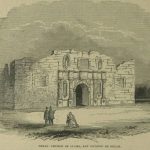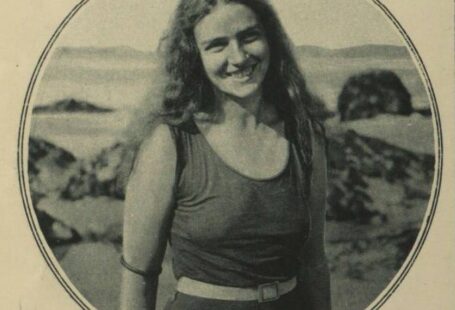The Operas of Verdi
The year 2013 is the bi-centenary of Verdi’s birth in 1813. He wrote a great number of operas. The celebrations this year reminds me of an early memory in operatic appreciation, when I attended a performance of Verdi’s Luisa Miller performed at Chelsea Town Hall, in the mid-1960s. I was struck by the power and inventiveness of Verdi, in his varied use of composition to supplement the drama. I have remained appreciative ever since, now preferring the later operas to the works of his early and middle years.
In searching the British Newspaper Archive, it is revealing that the British newspapers of the time were as keen as any other country to include reports of first performances. This is true from the very start of Verdi’s career. For example, Oberto, conte di San Bonifaciowas first performed at La Scala on 17 November 1839. Less than two weeks later, The Champion cites the opera, as it was to have involved a British singer, a Mrs. Shaw.
The Champion – Sunday 01 December 1839 page 7
Image © THE BRITISH LIBRARY BOARD. ALL RIGHTS RESERVED.
http://www.britishnewspaperarchive.co.uk/viewer/bl/0000042/18391201/025/0006
Fourteen of Verdi’s operas received their first performances between 1840-1849; and ten operas between 1850-1859. It is instructive to reflect on those which have endured in the repertory. For example, of those performed in the 1840s, Nabucco has retained its popularity, and Attila,and La battaglia di Legnano have not. Nabucco was first performed at La Scala on 9 March 1842. The Era printed a brief review on the 20th March, saying: “It was received with enthusiasm throughout, and is indeed a piece of extraordinary interest, from the commencement to the end.”
The Era – Sunday 20 March 1842 page 5 col. 4
Image © THE BRITISH LIBRARY BOARD. ALL RIGHTS RESERVED.
http://www.britishnewspaperarchive.co.uk/viewer/bl/0000053/18420320/013/0005
In the 1840s, the next opera composed by Verdi’s was being looked for. The Morning Post reported, on the 16 June 1845, that Verdi was composing both Macbeth and Attila. Attila was performed at Teatro La Fenice, Venice, March 17, 1846.
Morning Post – Monday 16 June 1845 page 6 col. 6.
Image © THE BRITISH LIBRARY BOARD. ALL RIGHTS RESERVED.
http://www.britishnewspaperarchive.co.uk/viewer/bl/0000174/18450616/032/0006
Attila was performed at Teatro La Fenice, Venice, March 17, 1846. On the 20th March, the Morning Post enthused: “…the journals of Italy assure us that Attila is superior to all those other works of Verdi, which… had already succeeded on the operatic stages of all the capitals of the Continent…” In quoting a letter of Verdi in the same article, we have the composer equivocating about its future : “Attila has just been produced here, and with surpassing good fortune. Last night the encores and recalls before the curtain were endless. My friends will have it that it is the best of all operas I have produced. The public appear to second their opinion; but time alone will decide.”
Morning Post – Monday 30 March 1846 page 5 col. 3.
Image © THE BRITISH LIBRARY BOARD. ALL RIGHTS RESERVED.
http://www.britishnewspaperarchive.co.uk/viewer/bl/0000174/18460330/023/0005
Forty-five years later, the article in the Aberdeen Journal reviewed Verdi’s achievements and it is Nabucco which is named, rather than any other of his early works. The article stated: “The popularity [he] acquired with a rapidity almost unexampled has been maintained with a constancy truly extraordinary.”
Aberdeen Journal – Monday 07 February 1887 Page 6 col. 4
Image © THE BRITISH LIBRARY BOARD. ALL RIGHTS RESERVED.
http://www.britishnewspaperarchive.co.uk/viewer/bl/0000032/18870207/026/0006
Verdi was viewed as the Italian composer of his time, bound up with the events in his home country, in particular with the movement for Italian independence. However, in his middle years, he received two commissions from the Paris Opera to compose and stage Les vêpres siciliennes (1855) and Don Carlos (1867). Less than a week after Les vêpres siciliennes was first performed on the 13 June 1855 in Paris, the correspondent of the Morning Post reported on third party opinions, as their correspondent had been unable to get a seat to view the opera: “The French journals pretty nearly all agree that the libretto is a bad one, …As regards the music, everyone agrees on one point – it is not equal to the ‘Trovatore’, which had so much success in Paris last winter.”
Morning Post – Thursday 21 June 1855 p.5 col.3.
Image © THE BRITISH LIBRARY BOARD. ALL RIGHTS RESERVED.
http://www.britishnewspaperarchive.co.uk/viewer/bl/0000174/18550621/033/0005
Two days after the first performance of Don Carlos, in 1867, the Dundee Courier (and several other papers) informed its reader that Napoleon III and Eugenie, the Empress, had attended it.
Dundee Courier – Wednesday 13 March 1867 p.3 col.6
Image © THE BRITISH LIBRARY BOARD. ALL RIGHTS RESERVED.
http://www.britishnewspaperarchive.co.uk/viewer/bl/0000162/18670313/023/0003
On the 14 March, the London Daily News printed a more extensive article, discussing the plot of Don Carlos at length. The theme of the lead male, Prince Don Carlos, struggling for the independence of the Spanish Netherlands, still resonated with many, as Italy had only been recently unified in 1860. The author of this article remains critical of Verdi: “At the same time, we find in Don Carlos the characteristic merit and defects of its author – force, energy, the love of the sombre, the violent and the disorderly.”
London Daily News – Thursday 14 March 1867 p.3 col.4
Image © THE BRITISH LIBRARY BOARD. ALL RIGHTS RESERVED.
http://www.britishnewspaperarchive.co.uk/viewer/bl/0000051/18670314/008/0003
More presciently, at the end of the same article, the critic of the French newspaper, Liberté is quoted: “I think it an important work, which will certainly live, notwithstanding its weak points.”
London Daily News – Thursday 14 March 1867 p.3 col.4
Image © THE BRITISH LIBRARY BOARD. ALL RIGHTS RESERVED.
http://www.britishnewspaperarchive.co.uk/viewer/bl/0000051/18670314/008/0003
However, the Pall Mall Gazette was more dismissive of the opera: “…but as a whole it will not rank with half a dozen of his previous works.”
Pall Mall Gazette – Wednesday 13 March 1867 p.5 col.2
Image © THE BRITISH LIBRARY BOARD. ALL RIGHTS RESERVED.
http://www.britishnewspaperarchive.co.uk/viewer/bl/0000098/18670313/007/0005
The Morning Post was more generous about Don Carlos, and, with the benefit of hindsight, more mature in its assessment: “The first impression left upon the mind after hearing this latest effort of the great master is that it displays great dramatic power; melodious declamation interprets human passion with an earnest vigour seldom met with in the lyrical drama.”
Morning Post – Wednesday 13 March 1867 p.5 col.2
Image © THE BRITISH LIBRARY BOARD. ALL RIGHTS RESERVED.
http://www.britishnewspaperarchive.co.uk/viewer/bl/0000174/18670313/020/0005
There was a considerable gap between the first performance of Aida, in Cairo, in December 1871 and the first performance of Otello on 5 February 1887. It is well known that Verdi was reluctant to compose any more operas after Aida. However, he was tempted back into composition by the excellence of Arigo Boito’s libretto for Otello. Three days later, the Bury and Norwich Post printed a review of this first performance. The author gave a full account of the praise given to Verdi on the opening night the previous Saturday. As to the performance, he was more critical: “…Signor Tamagno has a powerful tenor voice, and declaims with abundant vigour, but is not equal to the intellectual demands of his role (Otella), and Signora Pantaleoni, although a soprano of no slight merit, fails to realise the beau ideal of ‘the gentle lady wedded to the Moor.’ The choral singing was not first-rate; the band was excellent, and a better conductor than Signor Faccio would be difficult, if not impossible to find.”
Bury and Norwich Post – Tuesday 08 February 1887 p.2 col.7.
Image © THE BRITISH LIBRARY BOARD. ALL RIGHTS RESERVED.
http://www.britishnewspaperarchive.co.uk/viewer/bl/0000156/18870208/003/0002
After the great success of Otello, in 1887, Verdi’s last opera, Falstaff, was eagerly awaited. The day after its first performance, on the 9 February 1893, the Manchester Evening News reported on the mood in La Scala: “…when the curtain fell the applause was simply deafening. Signor Verdi again appeared and was recalled five times. … The general opinion of the work is that it must be regarded as a masterpiece from the point of view of an original interpretation of Shakespeare’s comedy. It is also remarked that the instrumentation is of a totally different type from that of the Italian and French comic operas.”
Manchester Evening News – Friday 10 February 1893 page 3 col. 2
Image © THE BRITISH LIBRARY BOARD. ALL RIGHTS RESERVED.
http://www.britishnewspaperarchive.co.uk/viewer/bl/0000272/18930210/034/0003
Time lends perspective, and Falstaff remains continuously in the operatic repertory today. It is difficult to better the judgement about Falstaff, written by the Earl of Harewood in Kobbe’s Opera Book:
“There is a sparkle, a rapidity of utterance, a speed of movement, an economy of means in the ensemble writing that has no equal in music written since Mozart, and every bar is endowed with a refinement of expression and a restraint that it would be difficult to imagine in the composer of operas written before Macbeth. … It is all as light as air, and yet out of it has been fashioned Shakespeare’s Falstaff drawn appropriately in the round, speaking Italian, but more English at heart than in any musical re-creation of him.”
In the bicentenary year of Verdi’s birth, having extensive archives available such as the British Newspaper Archive reminds us of the immediate impact that Verdi made when his operas were performed, all over Europe and beyond, giving him during his lifetime enormous reputation and fame that was fully deserved.
Ed King
March 2013
Further reading:
Wiki article on Verdi : http://en.wikipedia.org/wiki/Giuseppe_Verdi
The Earl of Harewood (Editor). Kobbe’s Complete Opera Book. 1987. Chapter 8. Giuseppe Verdi.





